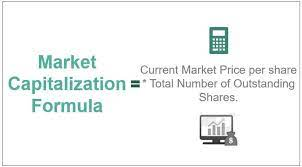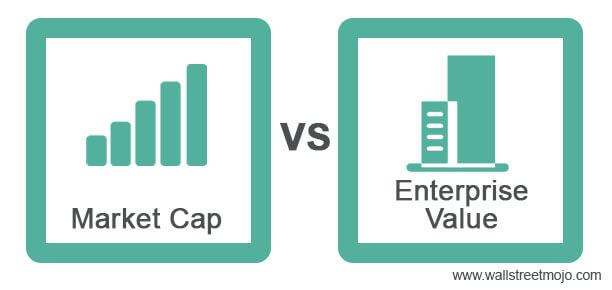Market Capitalization vs. Enterprise Value: What’s the Difference?
Oct 03, 2023 By Susan Kelly
Introduction
The equity value, also known as a firm's market capitalization, is one element of enterprise value. Both indicators are taken into account when deciding whether an investment is successful or unsuccessful, but each gives different information. A company's projected market capitalization is based on the price of its outstanding common shares. Enterprise value considers a company's financial interests, including those of its debt holders and subsidiaries, when calculating its true worth. It determines the value of a company's operating assets about its yearly revenue. Here you’ll learn about market capitalization vs. enterprise value.
In the financial services industry, assessing a company's value is crucial. It provides investors with a more comprehensive picture for assessing acquisitions and allocating capital, which is a significant factor. It also makes it easier for analysts and investors to predict and foresee the company's future profitability. Given the popularity of financial measurements, choosing the right metrics to determine a company's value is even more critical. The two indicators that are used the most frequently, however, are market capitalization and enterprise value.
What is Market Cap?

The company's market capitalization is another term for the market value of a company's stock. This financial statistic bases the value of a company exclusively on the price of its shares. A firm's market capitalization can be calculated by merely multiplying the number of outstanding shares by the current share price. Use the following formula to determine market cap:
- Market capitalization = shares outstanding x price per share
Whereas: The number of shares of a company's issued common stock that are outstanding is referred to as "shares outstanding" (as opposed to preferred stock). The cost per share is the same as the stock's current value on the relevant listed exchange. (1) The total number of shares multiplied by (2) prevailing stock price (3)
Given the information above, the market cap is calculated to be $591.25 billion (5.333 times $110.88). It's essential to keep in mind that a firm's market capitalization is dynamic and changes in response to changes in share price. This implies that the business's market capitalization fluctuates with the price of its shares.
Why is Market Cap important?
It's a handy tool for analysts and valuers to consider when figuring out the cost of acquiring a company. This financial indicator can help with firm value. The value investors assign to a company's stock is known as market capitalization. Investors can choose between a company's potential investment value in the large-, medium-and small-cap categories of the market based on market cap size. This is a valuable resource for investors to identify similar businesses in the same industry. Examine related products as well. The facts and examples above show that market capitalization directly correlates with share price and the number of outstanding shares.
What is an Enterprise Value?
However, enterprise value offers a more particular and distinctive way of determining a company's value. When determining a company's overall value, a few financial measures are market capitalization, debt, minority interests, preferred shares, total cash and cash equivalents, and minority interest. Though the minority ownership and preferred shares are usually kept at zero, this isn't always the case. The "enterprise value" of a company determines its true worth and is the sum of the costs involved in acquiring it..
Why Does Enterprise Value Matter?
Due to the lower risk, investors will nearly always decide to purchase a company with little to no debt. Due to the greater danger of debt default and the ensuing higher interest and principal payments, investors are less interested in companies with high debt loads and low cash balances. For instance, two businesses with the same market capitalization have drastically different enterprise values depending on how much debt they have and how much cash they have.

Conclusion
Enterprise value and equity (market cap), two metrics of a company's value, have different purposes when assessing investment possibilities. Enterprise value is used to calculate market capitalization. Equity/market capitalization, however, might act as a stand-in for the company's health and expansion. If you are doing your investment research, enterprise value should be a critical factor in your stock selection. However, because it enables the categorization of investments and risk management, market capitalization is helpful for the average investor.

Know-how
How To Pay Off A Debt In Collection: A Complete Guide
When it comes to paying off debt in collections, you have a variety of alternatives, including resolving the account and creating a payment schedule.
Learn More
Know-how
How Commission Credits Work
Some brokers would give the buyer all or part of their commission to encourage sales and move transactions swiftly. However, not all agents are prepared to part with the money they consider to be the product of their labor, and some jurisdictions do not permit the practice. There is substantial debate around real estate brokers that credit a portion of their commission to their clients.
Learn More
Know-how
Money Metals Exchange: A Comprehensive Review of Its Reputation
Discover how Money Metals Exchange stands out with transparent pricing, exceptional customer service, and educational resources for precious metals investors.
Learn More
Know-how
4 Global Economic Issues Of An Aging Population In 2022
The social and economic repercussions of an ageing population are starting to become more obvious in many industrialised countries all over the world. The population is ageing faster than at any other time in history, which presents policymakers with several interconnected challenges, including rising costs of health care, unsustainable pension promises, and shifting demand drivers within the economy.
Learn More
Know-how
How to Make Money in Golf
Ready to take your golf skills to the next level and start making money? Learn from the experts how to make golf money in this comprehensive guide.
Learn More
Mortgages
Optimal Strategies For Breaking A Car Lease
leasing may be an attractive option if you're set on driving a nice automobile but can't quite swing the hefty monthly payments or large down payment. One of the drawbacks of leasing is restricting your freedom of movement. If you return the car before the end of the lease, you may be subject to early termination fees and other penalties. However, you may always choose another route if you so want
Learn More